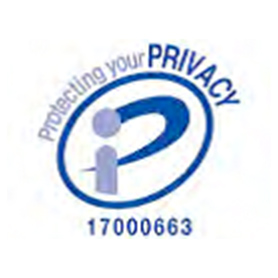Corporate Governance
Corporate Governance Report
Corporate Governance
In addition to providing independent oversight of the management team's performance and ensuring the appropriate execution of business activities, we are promoting effective disclosure to stakeholders.

Basic philosophy
With the aim of earning the continued support of our customers, shareholders, business partners, employees, local communities, and other stakeholders as a company with value that is worthy of trust, we strive to maximize corporate and shareholder value over the medium to long term and recognize the importance of fulfilling our responsibilities as a corporate citizen and achieving sustainable growth and development.
In line with Japan's Corporate Governance Code and at the direction of top management, outside members of the Board of Directors and Audit & Supervisory Board provide independent oversight of the management team's performance in a manner that takes into account the interest of stakeholders and ensures the appropriate execution of business activities. We also work actively to disclose information to shareholders and other stakeholders and strengthen our compliance framework.
Outline of corporate governance system (as of July 7, 2025)
We are a company with an Audit & Supervisory Board. The Board of Directors determines overall management and business execution policies. Executive officers, led by the President and Representative Director, are responsible for business execution. The Audit & Supervisory Board, which at present includes three outside members, and the Board of Directors coordinates with the internal audit departments to audit and supervise the discharge of duties by directors and executive officers. Under our corporate governance framework, four outside directors have also been appointed to the Board of Directors to bring external perspectives to decision-making and ensure the legality and objectivity of management. We believe that this enables us to conduct independent oversight of management and ensure appropriate business execution.
The Nomination and Compensation Committee has been established as a discretionary committee of the Board of Directors. This committee, which is responsible for putting forward candidates for the position of director to the Board of Directors and ensuring the appropriateness of remuneration for directors, currently consists of three directors, two of whom are outside. Beginning in June 2023, an outside director has been appointed committee chairperson, a move aimed at improving objectivity and transparency.

(Board of Directors)
At present, the Board of Directors comprises 10 directors and in principle meets monthly, with five members of the Audit & Supervisory Board also in attendance. The Board of Directors is responsible for deciding overall management policies and business execution policies, as well as for monitoring the performance of duties by directors, and strives to promote the active exchange of opinions with the aim of ensuring effective and swift decision making. Six of the 10 members are responsible for business execution, while the remaining four are outside directors with no involvement in day-to-day operations.
(Executive Officers)
We have adopted an executive officer system, whereby the Board of Directors is responsible for decision making and the executive officers are responsible for business execution. This initiative aimed to strengthening field divisions and enhance customer service by clarifying responsibilities and authority, thereby accelerating business execution. We currently have 33 executive officers, six of whom also serve as directors.
(Audit & Supervisory Board)
The Audit & Supervisory Board currently consists of five members, two of whom are full-time and three of whom are outside. In principle, the Audit & Supervisory Board meets monthly. Individuals well-versed in our businesses and internal affairs, as well as in finance and accounting, are appointed to serve as full-time members, while individuals who are independent of the management team, have extensive knowledge of corporate management, legal, financial and other matters and are capable of providing effective oversight and monitoring of the management team, are appointed to serve as outside members.
Nomination of candidates for appointment to the Board of Directors and the Audit & Supervisory Board
In accordance with the policy for appointment set forth by the Board of Directors, candidates for appointment to the Board of Directors and the Audit & Supervisory Board are decided through deliberation by the Board of Directors. Candidates for the Board of Directors are nominated from among candidates determined through discussion by the Nomination and Compensation Committee, the majority of members and the chairperson of which are outside directors. Candidates for the Audit & Supervisory Board are nominated with the agreement of the Audit & Supervisory Board.
Skills Matrix for SECOM Directors and Audit & Supervisory Board Members
| Name and position | Corporate management | Finance and accounting | Legal affairs, compliance and risk management | Sustainability and ESG | Security services industry | Global business | ICT and technology | Attendance at meetings of the Board of Directors (Audit & Supervisory Board) in the fiscal year ended March 31, 2025 |
|---|---|---|---|---|---|---|---|---|
| Yasuyuki Yoshida President and Representative Director |
● | ● | ● | ● | 12/12 | |||
| Tatsuro Fuse Senior Executive Director |
● | ● | ● | ● | 12/12 | |||
| Yoshinori Yamanaka Executive Director |
● | ● | ● | ● | 9/9 | |||
| Seiya Nagao Executive Director |
● | ● | ● | ● | 8/9 | |||
| Takashi Nakada Director |
● | ● | ● | ● | 9/9 | |||
| Makoto Inaba Director |
● | ● | ● | 9/9 | ||||
| Hajime Watanabe Outside Director |
● | ● | ● | 12/12 | ||||
| Miri Hara Outside Director |
● | ● | ● | 12/12 | ||||
| Kosuke Matsuzaki Outside Director |
● | ● | ● | ● | 9/9 | |||
| Yukari Suzuki Outside Director |
● | ● | ● | 9/9 | ||||
| Takayuki Ito Audit & Supervisory Board Member |
● | ● | ● | ● | 12/12(12/12) | |||
| Yasuhiro Tsuji Audit & Supervisory Board Member |
● | ● | ● | ● | 12/12(12/12) | |||
| Hideki Kato Outside Audit & Supervisory Board Member |
● | ● | ● | ● | 12/12(12/12) | |||
| Makoto Yasuda Outside Audit & Supervisory Board Member |
● | ● | ● | 12/12(12/12) | ||||
| Setsuo Tanaka Outside Audit & Supervisory Board Member |
● | ● | ● | 12/12(12/12) |
Internal audits and cooperation among board members and offices
(Audits by Audit & Supervisory Board members)
Audit & Supervisory Board members attend important meetings, including those of the Board of Directors, to exchange opinions on overall corporate management, as well as to collect reports on the discharge of duties from directors and other pertinent individuals and conduct audits focused on the possible occurrence of violations of laws, regulations, the Articles of Incorporation and/or shareholders' interests. The Audit & Supervisory Board also conducts audits of our overall business activities, as well as those of subsidiaries and affiliates, in accordance with annual audit plans.
Principal Activities of Audit & Supervisory Board Members in the Fiscal Year Ended March 31, 2025
| Participation in meetings of the Board of Directors |
100% |
|---|---|
| Participation in meetings of the Audit & Supervisory Board |
100% |
| Information sessions with directors and other executives of the parent company, subsidiaries and affiliated companies |
57 times |
| Audits conducted by Audit & Supervisory Board members at remote locations |
106 locations |
(Regular meetings between the President and Representative Director and Audit & Supervisory Board members)
Audit & Supervisory Board members hold regular (monthly) meetings with the President and Representative Director, during which they exchange opinions on important management-related issues, including the results of audits, to ensure common understanding.
(Meetings between Audit & Supervisory Board members and accounting auditors)
Audit & Supervisory Board members meet regularly (six times annually) with the accounting auditors, as well as additional meetings as necessary, for the purpose of exchanging opinions and information. Audit & Supervisory Board members receive explanations and exchange opinions regarding annual audit plans and audit results. If necessary, Audit & Supervisory Board members also act as observers during audits conducted by the accounting auditors at remote locations and during audit reviews (13 times in the fiscal year ended March 31, 2025).
(Collaboration with internal audit and other departments)
Audit & Supervisory Board members hold regular (monthly) meetings with the Internal Audit and Compliance Department, during which they receive reports and exchange opinions on the results of internal audits and, as appropriate, receive reports on inspections of subsidiaries from and exchange opinions and information with the Group Governance Department. If necessary, to ensure the efficiency of audits, Audit & Supervisory Board members ask the internal audit departments to conduct investigations.
Outside directors and outside Audit & Supervisory Board members
We appoint individuals who have extensive knowledge of corporate management to serve as outside directors, thereby incorporating a broad range of external perspectives not constrained by the internal affairs. We thus have a structure that ensures the transparency and objectivity of management.
We appoint Audit & Supervisory Board members who have a wealth of knowledge of corporate management, legal, financial and other matters (including three outside members, who are essentially independent of the management team). We have also established an auditing organization (including the Office of the Audit & Supervisory Board) that operates independent of day-to-day operations and a process (including periodic meetings between the President and Representative Director, among others, and the Audit & Supervisory Board members). This ensures that Audit & Supervisory Board members’ objective and neutral opinions are reflected promptly in operations. As a consequence, we believe that we fulfill our responsibility to conduct independent oversight of management performance in a manner that takes into account the interests of stakeholders.
We appoint outside directors and outside Audit & Supervisory Board members on the basis of pertinent requirements set forth in Japan’s Companies Act and the standards concerning independence set forth by financial instruments exchanges.
Messages from Outside Directors
Outside directors (Fiscal year ended March 31, 2025)
| Name | Principal activities |
|---|---|
| Takaharu Hirose | Mr. Hirose offers advice and recommendations at meetings of the Board of Directors based on experience and insights gained in the foundation and management of multiple enterprises and industry organizations. In addition, he participates in deliberations of the Nomination and Compensation Committee as a member thereof. Through these activities, he performs his supervisory function as an outside director adequately. |
| Hajime Watanabe | Mr. Watanabe offers advice and recommendations at meetings of the Board of Directors based on experience and insights gained through his many years of experience in corporate management. In addition, he participates in deliberations of the Nomination and Compensation Committee as a member thereof. Through these activities, he performs his supervisory function as an outside director adequately. |
| Miri Hara | Ms. Hara offers advice and recommendations at meetings of the Board of Directors based on experience and insights gained as a corporate officer and a tax accountant. In addition, she participates in deliberations of the Nomination and Compensation Committee as a member thereof. Through these activities, she performs her supervisory function as an outside director adequately. |
| Kosuke Matsuzaki | Mr. Matsuzaki offers advice and recommendations at meetings of the Board of Directors based on experience and insights gained as a corporate manager at major companies both in Japan and overseas. Through these activities, he performs his supervisory function as an outside director adequately. |
| Yukari Suzuki | Ms. Suzuki offers advice and recommendations at Board meetings based on experience and insights gained as a director at a publicly listed company with global operations. Through these activities, she performs her supervisory function as an outside director adequately. |
Outside Audit & Supervisory Board members (Fiscal year ended March 31, 2025)
| Name | Principal activities |
|---|---|
| Hideki Kato | Mr. Kato offers advice and recommendations at meetings of the Board of Directors, among others, based on experience gained through the execution of national policies and insights gained as a result of his accomplishments at a policy think tank. He also asks questions and states opinions to clarify issues. |
| Makoto Yasuda | Mr. Yasuda offers advice and recommendations at meetings of the Board of Directors, among others, based on experience and insights gained in the management of a global enterprise. He also asks questions and states opinions to clarify issues. |
| Setsuo Tanaka | Mr. Tanaka offers advice and recommendations at meetings of the Board of Directors, among others, based on experience and insights gained through the holding of important positions in government. He also asks questions and states opinions to clarify issues. |
Philosophy regarding the diversity and size of the Board of Directors
The Board of Directors consists of internal directors, who are familiar with SECOM's businesses and have diverse knowledge, and several outside directors with extensive insight in corporate management and other areas. Diversity in terms of gender and international experience is ensured and the number of members is appropriate to facilitate discussions and resolutions of substance. We will continue working to enhance the effectiveness of the Board of Directors by promoting further diversity and ensuring the appropriate size of the Board.
Remuneration for directors and Audit & Supervisory Board members
Remuneration for directors consists of pecuniary remuneration (fixed monthly salary and bonuses) and share-based remuneration (shares with restrictions on transfer). Outside directors receive a fixed salary only.
The fixed monthly salary portion of pecuniary remuneration paid to directors and the share-based remuneration paid to directors (excluding outside directors) are determined comprehensively in consideration of job responsibilities and years of service, as well as the performance of the Company. Bonuses paid to directors (excluding outside directors) are determined with comprehensive consideration given to consolidated operating profit, earnings per share and employee engagement (employee satisfaction), which are key management targets. The relative proportion of fixed monthly salary, bonuses, and shared-based remuneration paid to directors (excluding outside directors) is approximately 65:15:20.
Remuneration for Audit & Supervisory Board members comprises pecuniary remuneration only and is determined in amounts commensurate with job responsibilities, through deliberation of the Audit & Supervisory Board set within the maximum limit resolved at the Ordinary General Meeting of Shareholders (¥90 million/year).
Remuneration for Directors and Audit & Supervisory Board Members in the Fiscal Year Ended March 31, 2025
| Position | Total remuneration (Millions of yen) |
Breakdown of total remuneration (Millions of yen) |
Number of entitled individuals |
|||
|---|---|---|---|---|---|---|
| Basic remuneration |
Performance- linked remuneration |
Nonpecuniary remuneration |
||||
| Fixed salary | Stock options | Bonus | Restricted stock |
|||
| Directors (excluding outside directors) | 322 | 207 | - | 63 | 51 | 8 |
| Audit & Supervisory Board members (excluding outside members) | 49 | 49 | - | - | - | 2 |
| Outside directors | 54 | 54 | - | - | - | 5 |
| Outside Audit & Supervisory Board members | 32 | 32 | - | - | - | 3 |
| Total | 459 | 344 | - | 63 | 51 | 18 |
Evaluation of the Board of Directors' effectiveness
Evaluation process
The effectiveness of the Board of Directors is evaluated annually. In the period under review, a survey was conducted in January 2025 and responses were collated by the Board's secretariat in mid-February. Findings were subsequently discussed by the Board.
Summary of findings
(Composition of the Board of Directors)
The opinion was expressed that increasing the number of female and outside directors has enhanced the diversity of the Board of Directors, that the balance between execution and oversight is appropriate and that the Board is an appropriate size to ensure active discussions and swift decision making. Constructive views were also expressed regarding further diversification of the Board's composition, including by promoting female directors from within the Company and appointing directors with diverse backgrounds.
(Administration of Board of Directors' Meetings)
The Board of Directors meets once monthly in principle to enable swift discussion and resolution of critical matters. To ensure that directors and Audit & Supervisory Board members are able to make appropriate decisions, matters deemed particularly critical are discussed by the Board of Directors prior to resolution and a progress report on those matters is made to the Board of Directors subsequent to resolution. Both outside directors and outside Audit & Supervisory Board members actively made comments and expressed the opinion that the atmosphere was conducive to free and open discussion. The view was also expressed that improvements had been made, based on the previous year's survey, in the processes for explaining and reporting on various matters, including the provision of briefings prior to Board of Directors' meetings, as well as for advance discussions and reporting on ongoing progress. Various other opinions were also conveyed, including that greater opportunities should be created for communicating with outside directors and exchanging opinions outside the framework of Board of Directors' meetings, thereby invigorating discussions.
(Oversight function of the Board of Directors)
Matters handled by the Board of Directors were selected appropriately, based on the Rules of the Board of Directors, and the opinion was expressed that discussions on management policies and corporate philosophy were adequate. At the same time, constructive views were shared regarding the further progress of discussions—currently being approached from a medium- to long-term perspective—regarding matters such as the overall direction of management strategies, governance and risks, in light of changes in the operating environment.
Future initiatives
To further enhance corporate value and realize an even more effective Board of Directors, we will continue to promote efforts to improve the Board's functions based on evaluations and opinions expressed.
Status of strategic shareholdings
Policy on shareholdings
We may, after comprehensive examination, acquire and/or hold listed shares for the purpose of collaboration, capital or business tie-up, business incubation, or the maintenance or expansion of transactions involving our services and products. If as the result of an assessment, the appropriateness of such a holding is judged insufficient, it will be targeted for reduction through the sale of shares.
Verification of the rationality of shareholdings
The Board of Directors assesses the benefits and risks arising from each holding annually. In addition to confirming the status of transactions with, as well as the growth potential and profitability of, each investee company, based on financial condition and operating performance, we comprehensively examine the appropriateness of the holding and determine whether it should be maintained.
Compliance
We strive to improve compliance by promoting strict adherence to the SECOM Group Code of Employee Conduct.
Basic philosophy
We provide security services, the objective of which is to protect the lives and assets of our customers from legal violations or malfeasance by third parties. As such, we recognize that it is essential that we conduct our duties in good faith and in a manner deserving of the trust of our customers and society. A key feature of the security services business is that the employees who provide services are in a position of regulating others. Because they are in this position of regulating others, employees must also conduct themselves in a disciplined manner, discharging their duties in good faith and in compliance with the letter and the spirit of the law, to earn the trust of customers, which is critical to the security services business. Since our establishment, we have viewed compliance as a matter of utmost importance. Accordingly, our basic policy has always been to promote systematic measures to ensure all employees' unqualified compliance with the letter and spirit of the law. This has earned us the trust of a wide range of customers and supported steady growth.
The SECOM Group Code of Employee Conduct prescribes specific standards for employee behavior and ethical principles that must be observed by all executives and employees in their relationships with stakeholders, including communities, customers, and business partners. The code, which is also published in the form of a pocket-sized guide, thus serves as a universal and timeless template for everyone in the SECOM family. Standards govern, among others, deterring relations with antisocial elements, prohibiting of corruption and bribery, and complying with related laws.
System for promotion and administration
We recognize compliance as not only the observance of laws and regulations, and of SECOM's Articles of Incorporation, but also the foundation of the stringent management of our day-to-day operations. Individual employees are responsible for promoting adherence to the SECOM Group Code of Employee Conduct. Managers are charged with providing guidance regarding the SECOM Group Code of Employee Conduct, including standards governing compliance, and supervising the actions of employees to ensure compliance. Executive officers are responsible for overseeing the departments they supervise, while the President and Representative Director provides control for the Company as a whole.
Once annually, executive officers analyze and evaluate business and malfeasance risks in the business for which they are responsible and report their findings to the President and Representative Director and the members of the Audit & Supervisory Board, as well as review established internal rules and various manuals and make revisions as necessary.
The duties of the internal audit departments, i.e., the Internal Audit and Compliance Department and the Group Governance Department, include inspecting each group, department, and subsidiary, providing guidance on addressing matters requiring corrective action, and reporting inspection results to the President and Representative Director, as well as to relevant executive officers.
SECOM AI Ethics Principles
With the rapid proliferation of AI-based services and mechanisms, it is important for companies to commit themselves to the ethical and proper use of these technologies. We have formulated the SECOM AI Ethics Principles to establish guidelines for the use of AI. In accordance with this charter, we continue to develop and extend advanced services that customers can use with peace of mind.
Whistle-blowing system
The SECOM Group Code of Employee Conduct requires employees to report to their superior should they discover that an employee, executive, or individual affiliated with a subcontractor has engaged in or appears likely to engage in an action that violates the code or could damage the credibility of the Company. In the event that no corrective measures are taken after a report has been made, or if circumstances make reporting to a supervisor difficult, employees may report directly to the Internal Audit and Compliance Department via the Hot Helpline, to a lawyer via the Hot Helpline's external help desk, or to the Human Resources Department and Internal Audit and Compliance Department via the Harassment Help Desk. Executives and employees of subsidiaries may report violations via the Group Head Office Helpline directly to the Group Governance Department.
Whistle-blowers' names and the content of whistle-blower reports are kept confidential. As long as a report has been made in good faith, whistle-blowers are protected from any adverse impacts even if the report is not borne out by the subsequent investigation. Pertinent executive officers are obliged to swiftly assess the results of investigations and take appropriate corrective measures to resolve the situation. At the direction of said executive officers, whistle-blowers are notified confidentially of the nature and outcome of investigations.
Whistle-Blower Reports Received
| Year ended March 31, 2023 |
Year ended March 31, 2024 |
Year ended March 31, 2025 |
|
|---|---|---|---|
| Number of reports | 153 | 171 | 221 |
Organizational Culture Committee
The Organizational Culture Committee is a standing committee chaired by the President and Representative Director that meets periodically or as necessary at the direction of the President and Representative Director and examines important organizational culture-related issues and determines important official commendations and punishments.
The Organizational Culture Committee also deliberates on matters related to compliance with and the administration of the SECOM Group Code of Employee Conduct that have been reported to the President and Representative Director by the Internal Audit and Compliance Department or the executive officer in charge. If necessary, the committee examines proposals for modifying the system for administering compliance or amending the SECOM Group Code of Employee Conduct. All such proposals must be deliberated by the Organizational Culture Committee, reviewed by Audit & Supervisory Board members and approved by the Board of Directors.
Global compliance training
We have translated SECOM's Philosophy and the SECOM Group Code of Employee Conduct, which outlines the basic concept and specific standards for employee behavior, into multiple different languages and work to advance awareness across the global SECOM Group. We also provide training to the senior management of overseas Group companies on key aspects of compliance, including observance of laws and regulations, the prevention of bribery, and internal controls.
Information Security
The establishment of the SECOM Group Information Security Basic Policy and the creation and operation of a robust information security system enable us to provide services that can be used with peace of mind.
Policy and system for promoting information security
Any leakage of personal or confidential information entrusted to us by customers has the potential to disrupt our ability to provide security services, damage or adversely impact customers and result in the forfeiture of our brand image and reputation for reliability.
For this reason, we have established the SECOM Group Information Security Basic Policy and are committed to maintaining a stable operational foundation by implementing necessary measures to counter information security risks and promoting their continuous review and improvement. We have put an executive officer in charge of information security for the Group as a whole. In addition, executive officers in charge of each business have been made responsible for information security–related matters for their particular business, as well as for collaborating with the executive officer in charge of information security to report on issues and presenting proposals to the President and Representative Director. Moreover, when outsourcing work, we enter into appropriate contracts and provide thorough guidance and supervision to subcontractors.
Reducing information security risk
We have implemented powerful security measures to reduce risks associated with information leaks and cyber attacks. We also work to ensure that all employees of the SECOM Group, regardless of employment format, comply fully with our information security rules, which include rules governing the use of personal computers and cellular telephones that must be protected for confidentiality reasons, the storage and carrying of information, and steps to be taken when an information security–related incident arises, or a violation of any other information security rule is discovered. Information system controls and audits are the responsibility of the department in charge of information security and are conducted in accordance with Japan's Information Security Management System (ISMS) standards under the guidance of the executive officer in charge of information security. As well as conducting regular assessments of vulnerability to external cyber attack risks, we monitor information systems around the clock to ensure we are prepared to respond to risks, including those related to large-scale disasters and cyber attacks.
Protecting personal information
The SECOM Group Code of Employee Conduct states that all information obtained in the course of business is confidential and must not be leaked, a stipulation with which all executives and employees must strictly comply. We strive to prevent leakage, loss, and damage through employee training and efforts to promote awareness regarding the treatment of personal information, as well as by ensuring stringent management.
All employees are required to participate in e-learning programs and tests annually to confirm understanding of and adherence to basic procedures and rules. The internal audit departments conduct periodic inspections of the handling of personal information, data management, and access control at each SECOM Group site. In addition, we have established a contact point for queries regarding the handling of personal information and for complaints and consultations regarding our system for managing and protecting personal information, facilitating quick and appropriate responses. SECOM and Secom Trust Systems, among others, have earned certification under Japan's Privacy Mark, which is granted to organizations that take appropriate measures to protect personal information.
Thorough information security (Year ended March 31, 2025)

- Annual e-learning and testing to confirm understanding and adherence
(participation: 100% of employees) - Voluntary audits (implementation: 100% of sites)
- No leaks of information
Management Information




